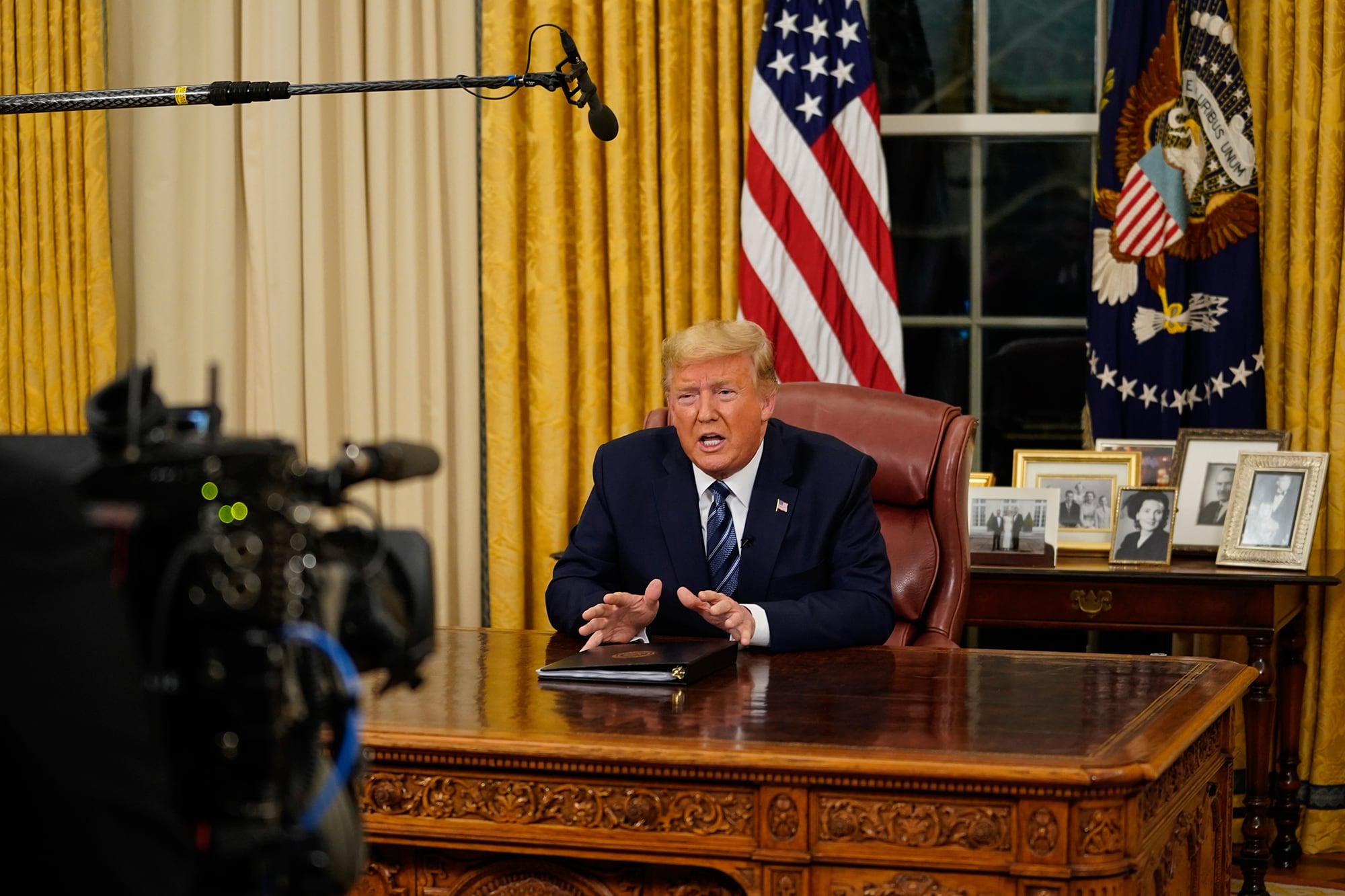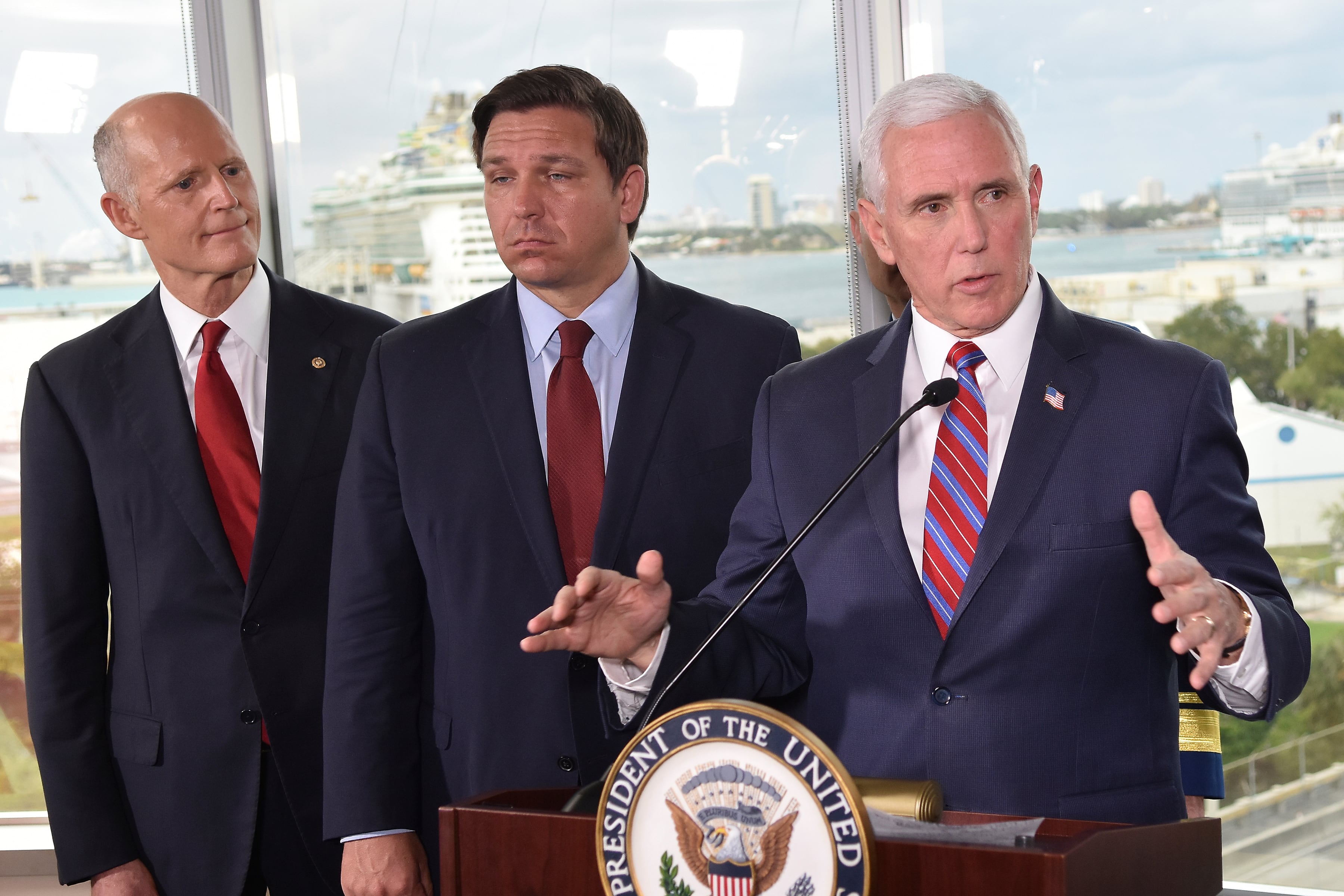Pentagon officials announced significant restrictions on service member and family travel worldwide amid a series of new White House initiatives released Wednesday to try and curb the spread of the coronavirus throughout the United States.
Effective Friday, all troops, military civilian employees and family members traveling to or from locations with widespread transmission of the illness, designated “Warning Level 3” (which at the moment include Italy, South Korea and China) will “stop movement” for the next 60 days, per a memo signed by Defense Secretary Mark Esper.
(Update: After Esper’s announcement, the Centers for Disease Control and Prevention greatly expanded the list of Level 3 countries to more than two dozen that includes most of Europe).
In addition, travel to locations with “sustained transmission” designated “Warning Level 2” — which at the moment includes Japan, Bahrain and the United Kingdom — will be prohibited for family members of troops and civilian personnel for two months. Non-essential civilian hiring for military vacancies will also be postponed.
DoD memo on travel restrictions
There will be some travel exemptions, according to the memo, for travel that is:
* determined to be mission essential
* necessary for humanitarian reasons
* warranted due to extreme hardship.
The Pentagon wants those who are traveling to Level 3 and 2 countries to use military or Pentagon-contracted aircraft whenever practical.
“The Department of Defense’s top priority remains the protection and welfare of our people," said Esper in a statement. “I remain confident in our ability to protect our service members, civilians and families.”
The Pentagon also issued updated Force Health Protection guidance requiring a screening and 14-day self-monitoring at home upon return for all DOD personnel who have traveled from, to or through Level 2 or 3 countries. This policy will be reviewed prior to the end of the 60-day period to determine whether it will be modified or extended.
In addition, the Pentagon’s top personnel official — acting under secretary Alexis Ross — said that any service members or civilian employees who develop a fever, cough or difficulty breathing should immediately inform their chain of command.
Force Health Guidance memo
The moves came as President Donald Trump announced a travel ban for visitors from most European countries, with exceptions for British citizens and Americans returning home. The latter group will undergo “appropriate screenings” to determine whether they may have contracted the illness.
In a nationwide address from the Oval Office Wednesday night, Trump said that the moves are designed to “significantly reduce the threat to our citizens” from the pandemic.
“Smart action today will prevent the spread of the virus tomorrow,” the president said. “Every community faces different risks and it is critical for you to follow the guidelines of your local officials who are working closely with our federal health experts.”

More than 126,000 individuals worldwide have contracted the illness, and more than 4,600 have died. In the United States more than 1,300 cases have been diagnosed and nearly 40 deaths blamed on the illness, nearly all of them in the last two weeks.
Esper said some official travel to areas of infection may still be allowed, but only after military officials review the need for such trips.
Individuals retiring or separating from the military will be exempt from the travel bans, as will “those traveling as part of a Department of State-issued Authorized Departure.” But those travelers will be subject to new travel screening protocols and possible quarantines.
RELATED

The illness — which health experts predict will have wide-ranging impact on American businesses and daily life as it continues to spread — has already forced the cancellation of numerous military events and activities.
Infected individuals have been quarantined at a series of military bases across the country. Governors in Washington, California, New York, Florida, Massachusetts, Rhode Island and Connecticut have all declared state emergencies, allowing them to activate the National Guard to help in their response efforts.
Veterans Affairs officials have announced they are treating multiple cases of the coronavirus at several medical centers, and officials are preparing to be part of any national health care response to the illness.
Leo covers Congress, Veterans Affairs and the White House for Military Times. He has covered Washington, D.C. since 2004, focusing on military personnel and veterans policies. His work has earned numerous honors, including a 2009 Polk award, a 2010 National Headliner Award, the IAVA Leadership in Journalism award and the VFW News Media award.
Howard Altman is an award-winning editor and reporter who was previously the military reporter for the Tampa Bay Times and before that the Tampa Tribune, where he covered USCENTCOM, USSOCOM and SOF writ large among many other topics.





